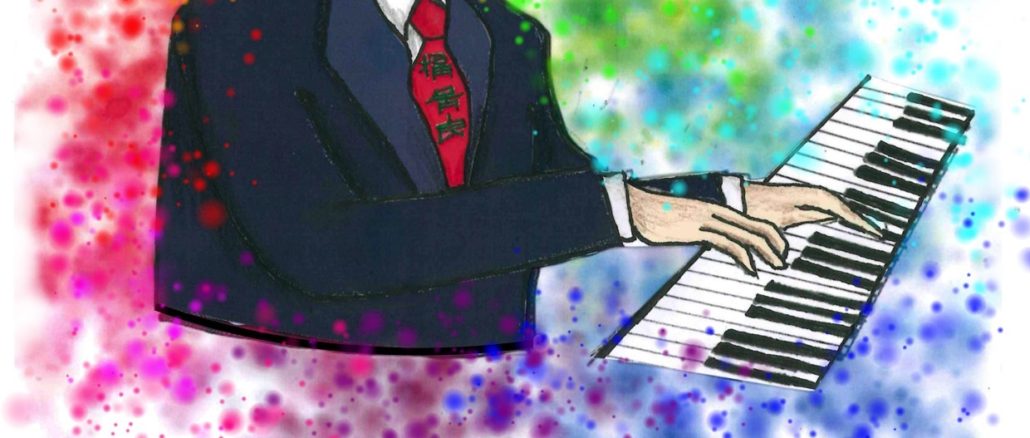
Grandiose statements require grandiose substantiation, and as such it’s a rare day that I would take such a concept to task. Though it is of little debate as to whether Mr. Ryo Fukui’s 1976 debut would claim right to being his magnum opus, its standing, brilliance and legacy sadly remain largely unrecognised due to a combination of circumstance, geography, timing and that all of ingredients in the sphere of the music world – luck.
Earlier this year Fukui passed away and this record is no more celebrated than when he was still alive, with exception to those lucky enough to have stumbled across him. My own discovery came after some late night deep sea diving amongst the rarer jewels of YouTube, and the quest to gather enough coin for a copy of the 2009 vinyl repressing continues.
1970s America was already a generation and a cultural revolution outside of the height of the jazz era and subsequent craze. Stalwarts of the genre were either dead, retired or excavating new and exciting possibilities through the ground-breaking work of jazz fusion, particularly Miles Davis starting with ‘Bitches Brew’. Synthesisers, Middle Eastern scales and even conjunctional philosophies and spiritual movements were getting caught up with everyone from Herbie Hancock to Alice Coltrane.
In post-war Japan, a vibrant jazz scene had developed after tours by American musicians in the Pacific arena. At 22, Fukui became a self-taught pianist and made quite a name for himself with his natural ability, improvisational skills and power to transform a blasé, overworked standard into something truly unique and self-moulded. It was only six years after that ‘Scenery’ was recorded.
Beginning with ‘It Could Happen to You’, Fukui grants a placid, serene introduction to the hard bop classic. The chorus sees him playfully dancing around the major scale, creating gorgeous little ornamentations to an otherwise simple chord progression. Next up is ‘I Want to talk About You’ from Coltrane’s 1958 debut which is tackled with impressive, unimposing technical candour while maintaining a strong, fundamentally intimate aesthetic. An aesthetic which is crucial to the feeling of the piece. Never overstepping the fine balance of these two components is the key to Fukui’s brilliance.
‘Scenery’ reaches the apex of its majesty with an original, ‘Early Summer’. The track takes full advantage of over 10 minutes of tape as an ambitious, all-encompassing work making range of the band in full swing as well as a more intimate, solemn passage. Fukui starts on that very note before incorporating the band along with some furious slaps of chord progressions that mark themselves as the signature melody of the piece. Progressively, the climax arrives with a three minute piano solo that nods off to the rhythm section who take their own bow seamlessly.
The frenetic energy of Fukui’s keys lead to some truly dazzling runs that slip in and out of scale to emphasise that sense of urgency and pure emotion pouring out of his fingers up and down every end of the piano. Despite the near chaotic feel of its heights, none of his improvisations or runs feel contrived or hollow hearted – this being a remarkable feat considering that the rhythm, feel and structure of the piece never become hostage to Fukui’s wild imagination. ‘Early Summer’ blends both of the albums’ styles perfectly, lending space to the jolly, racing enthusiasm of the first half and the more sombre, reflective second half.
The title track sees a more precision-oriented approach as opposed to the broad legato sweeps that characterised the first half. Melancholic undertones give the track a surface with which to gently guide the listener toward the album’s end. Without any great leaps, runaway solos or spotlight trade-offs between the musicians similar to that of ‘Early Summer’, ‘Scenery’ simply dwindles bit by bit until it is time to say goodnight.
Jazz of the 1970s was constantly tripping over itself in continous attempts to emphasise individualistic grand innovation as the next great step in the genre. It most certainly left us with a legacy of the weird and wonderful as well as the groovy and energetic, but irony reigned supreme with the traditional take becoming the masterpiece of the time. ‘Scenery’ is an eclectic mix of jazz through its various eras – bop, cool jazz and of course, modal. Fukui paid homage to them all succinctly while still applying his own temperament across the record, and though the ground remained untouched, this record deserves its place among the finest of the decade.
Barry O’Sullivan




Leave a Reply